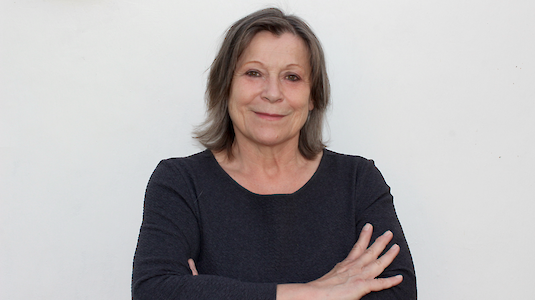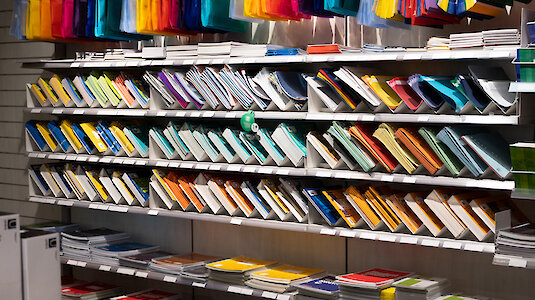Clever einkaufen - a success story
On the occasion of the 15th anniversary of "UmweltTipp!" we asked the expert Jutta Kellner about the initiative "Clever shopping for school" about the developments.
How did the idea for the "Clever Shopping for School" initiative come about?
The idea of critically examining school supplies according to environmental aspects already existed in the 90s. Then it became quiet around the topic. In 2003, a new attempt was made in the form of "product sheets" on school materials, which became the shopping guide "Clever shopping for school" and then also the initiative of the same name by the Ministry of the Environment. Finally, in 2008, the "UmweltTipp!" was added as a purchasing recommendation of the Ministry of the Environment together with the Austrian paper trade. The foundation stone for this was laid by the product list with the first researched articles as "UmweltTipp! recommendation. Since then, everyone who buys school supplies can find environmentally friendly articles quickly and easily on the initiative's information portal. At the same time, one of the initiative's goals was to ensure that the range of environmentally friendly school articles available from manufacturers and retailers continues to grow.
What are the greatest successes of the Clever Shopping for Office and School initiative?
When I look back over the last 15 years, there have been three major successes. Firstly, that in Austria more than 80% of exercise books are already made of 100% recycled paper. That was a huge step that has helped to ensure that almost every school bag today contains eco-school exercise books. Secondly, that a product list was created in which the number of environmentally friendly products recommended in it increased fivefold. Now all the UmweltTipp! recommendations can now be called up at the touch of a button, with a smartphone even right in the shop. And finally, a very important success from my point of view is that the Federal Committee of the Austrian Paper Trade with the paper shops including the SKRIBO partners as well as the big players in the industry, PAGRO, LIBRO Diskont, Thalia and Interspar have supported the initiative since the beginning.

Jutta Kellner. Copyright by Magdalena Mokesch.
What are you personally particularly proud of?
Proud is perhaps not the right word, but I was very pleased that a separate guideline for "office and school products" was developed for the Austrian Ecolabel at that time and thus a reliable environmental labelling became possible for these product groups as well. The initiative "Clever shopping for office and school" was a major impulse and provided a lot of know-how. Since then, many office and school products have been awarded the Austrian Ecolabel. What I am really proud of is that the initiative of the Ministry of the Environment still exists today and that all cooperation partners have stuck to it with commitment. That is not something that can be taken for granted in these driven times.
How important are quality labels for you?
Quality labels that can be relied on are important orientation aids for purchasing decisions. The emphasis is on reliable, which means that they are checked according to strict criteria and independently, as is the case with the Austrian Ecolabel. With the Austrian Ecolabel, not only partial aspects are taken into account, such as, for example, when it comes to paper, sustainable forest management for wood as a raw material, but the entire process from fibre production to the finished paper is checked. This process involves a lot of chemicals and other environmental pollution. If I were to look only at the wood, this would fall by the wayside. One of the aims of the Clever Shopping for Schools initiative is therefore to draw special attention to such comprehensive, state eco-labels.
Despite the success of the "Clever Shopping for Office and School" initiative, do you still see a need for action in the school sector?
Basically, we still have a lot of tasks ahead of us. As we know, it is a long way from knowledge to action. We need even more committed parents, teachers and educators who care not only about quality but also about environmental criteria. School supplies are often not the focus of everyday life. And yet it is precisely the tool that children use every day. Not only the children, but all of us. There are many alternatives, as the product list shows. It is important that these options are used much more. That is what the initiative is working on.
What is your background in environmental policy?
Ecological and social issues have always been very important to me. I became environmentally aware in the anti-nuclear movement in the 1980s. From 1991 to 2002 I was a member of the environmental advisory board of the trade union of private employees, then also a works councillor and for ten years an environmental and health councillor for a citizens' list in my home municipality. Since 1995 I have been working freelance in the field of environment & communication. From 2004 to 2022, I was in charge of the content and further development of the initiative "Clever shopping for school...and the environment is happy". In the foreseeable future, I will end my professional activity, but certainly not my commitment to the environment.
